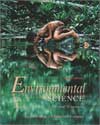Bright, Christopher. 1999. "Invasive Species: Pathogens of Globalization."
Foreign Policy. Fall 1999. With increased world trade, invasive species
have become a policy issue as well as an ecological threat. Cappuccino, Naomi, and Peter W. Price, eds. 1995. Population dynamics: New
Approaches and synthesis. New York: Academic Press. A good blend of population
biology and economic applications. Case, Ted J., Martin L. Cody, and Exequiel Ezcurra (eds). 2002. Island Biogeography
in the Sea of Cortez II. Oxford Univ. Press. Ecology in an area rich in
biodiversity. Caswell, Hal. 2001. Advances in Ecological Research (Vol 32).
Academic Press. An anthology of articles on the current state of ecological
research. Dobbs, David. 2000. The Great Gulf: Fishermen, Scientists, and the Struggle
to Revive the World's Greatest Fishery. Covelo, CA: Island Press. A fascinating
description of the collapse of the New England cod fishery and the controversy
between commercial fishermen and government regulators about how to count wild
fish. Driscoll, Don A. 1998. "Genetic Structure, Metapopulation Processes and
Evolution Influence the Conservation Strategies for Two Endangered Frog Species."
Biological Conservation 83(1): 43-54 Gives an example of the importance
of population genetics in conservation. Ebert, Thomas A. 1998. Plant & Animal Populations: Methods in Demography.
Academic Press. Application of population data and life cycle analysis in biological
conservation. Fahrig, Lenore. 1997. "Relative Effects of Habitat Loss and Fragmentation
on Population Extinction." The Journal of Wildlife Management. 61:
603-610. Presents information that indicates that habitat loss has a greater
effect on species extinction than does habitat fragmentation. Ford, Andrew. 1999. Modeling the Environment. Island Press. Presents
basic concepts in modeling and system dynamics. Gotelli, N. J. 1995. A Primer of Ecology. Sunderland, Mass.: Sinauer
Associates, Inc. 206pp. A general text on population ecology. Gurney, W. S. C. and R. M. Nisbet. 1998. Ecological Dynamics. Oxford
Univ. Press. An introductory text on mathematical modeling and population biology. Hanski, Iikka. 1999. Metapopulation Ecology. Oxford, UK: Oxford Univ
Press. A comprehensive synthesis of population biology. Hanski, I. (ed), 1997. Metapopulation Biology: Ecology, Genetics, and Evolution.
A collection of articles on population biology. Hastings, Alan. 1994. Population Biology: Concepts and Models. Berlin:
Springer Verlag. A general text on the subject. Hubbell, Stephen P. 2001. The Unified Neutral Theory of biodiversity and
Biogeography (Monographs in Population Biology No 32). Princeton Univ. Press.
Presents a theory to explain the origin, maintenance, and loss of biodiversity
in a biogeographic context. Hughes, J.B., G.C. Daily, and P.R. Ehrlich. 1997. "Population Diversity:
Its Extent and Extinction." Science 278(5338): 689-692. An attempt
to estimate the losses of distinct populations within species. Kot, Mark. 2001. Elements of Mathematical Ecology. Cambridge, UK: Cambridge
Univ. Press. An introduction to classical and modern population biology. MacArthur, Robert H. and Edward O. Wilson. 2001. The Theory of Island Biogeography.
Princeton, NJ: Princeton Univ. Press. A new edition of an ecological classic. McCullough, Dale R., ed. 1996. Metapopulations and Wildlife Conservation.
Covelo, CA: Island Press. Metapopulation theory is an important development
in both conservation biology and wildlife management. Meffe, G. K. and C. R. Carroll. 1997. Principles of Conservation Biology
(2nd ed.). An excellent introduction to conservation biology and
population ecology. Miller, P. S. 1995. "Selective Breeding Programs for Rare alleles: Examples
from the Przewalski's Horse and California Condor Pedigrees." Conservation
Biology 9(5): 1262-1273. Application of population genetics to the conservation
of rare species. Moritz, C., et al. 1997. "Genetic Population Structure of the Greater
Bilby Macrotis Lagotis, a Marsupial in Decline." Molecular Ecology
6(10): 925-936. Peterson, Rolf O. 1995. Wolves of Isle Rroyale: A Broken Balance. Minocqua,
WI: Willow Creek Press. A fascinating story of a isolated population of top
carnivores. Pletcher, Daniel H., et al. 1997. "Population Dynamics of a Recolonizing
Wolf Population." The Journal of Wildlife Management 61: 459-465.
A detailed example of population changes within a group of gray wolves. Rosenzweig, M. L. 1995. Species Diversity in Space and Time. Cambridge
Univ. Press. What factors determine biological diversity? Roughgarden, Jonathan. 1997. Primer of Ecological Theory. New York:
Prentice Hall. An overview of ecological modeling as it relates to population
biology and current ecological theory. Schwartz, Michael K., et al. 2002. "DNA reveals high dispersal synchronizing
the population dynamics of Canada lynx." Nature 415, 520-522 (31
January 2002). Even across distances greater than 3,000 km, there is high gene
flow between core and peripheral lynx populations. Smith, R. L. 1990. Ecology and Field Biology (4th ed.) New York: Harper
and Row. A classic field ecology text. Soulé, M. E., ed. 1987. Viable Populations in Conservation. Cambridge,
MA.: Cambridge University Press. A good discussion of the role of population
biology in conservation. Stiassny, M. L. J. and A. Meyer. 1999. "Cichlids of the Rift Lakes." Scientific
American 280(2): 64-69. These fish exhibit some of the fastest speciation
of any biological group, but human changes in their native lakes threatens their
amazing diversity. Tilman, D. and P. Kareiva (eds). 1997. Spatial Ecology. Princeton Univ.
Press. Discusses the structure, dynamics, diversity, and stability of multispecies
communities. Tilman, D. 1999. "Diversity and Production in European Grasslands." Science
(US) 286: 1099-1100 ( November 5,1999). Contrary to predictions from simple
models, diversity can protect biological communities from disturbance. Whittaker, Robert J. 1999. Island Biogeography: Ecology, Evolution and Conservation.
Oxford, UK: Oxford University Press. An excellent introduction to the science
of island biogeography and its conservation implications. Wilson, E. O. and W. H. Bossert. 1971. Primer of Population Biology.
Sinauer. A classic in the field. | 


 2003 McGraw-Hill Higher Education
2003 McGraw-Hill Higher Education